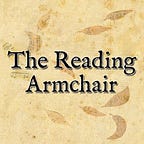Review: Watchmen, by Alan Moore and Dave Gibbons
Does the world really need another review of Watchmen? It’s probably the most celebrated and studied super-hero comic. So, instead of writing a typical review, here I’ll just write a “love letter” to this great comic book. But before anything else, if you haven’t read it yet, just go! I’ll wait for you! Seriously, this is a must-read!
The fact that I seriously ADORED this graphic novel is no surprise. You’ve probably heard it before, but here it is one more time: Watchmen is indeed the greatest graphic novel ever written. Ok, this might actually be an overstatement, but there are many arguments to support it, and for me, at least, it is. I was expecting greatness from the very beginning, but the story managed to surprise and move me in a way that I couldn’t describe. So, here I am, some years since I’ve read it (I know it took me too long to pick it up), still thinking about it, and deciding to write my thoughts about it.
So, what makes Watchmen the comic it is? Is it the characters, the story, or the feelings? Is it a combination of those things? For me, it’s the things that it stands for: being true to yourself. There is no distinction whether oneself is chaotic, has super-powers, is a somewhat ordinary guy trying to hunt some injustice, is a bloodthirsty creepy guy, or is just anyone.
All the characters have flaws, some even carry unforgivable sins, but they are heroes and they strive for a better world. Those flaws are present even from the Minutemen days. However, I will not dwell on the characters, as this is a topic discussed so often. I could talk about the form of this comic book, the deconstruction of the superhero genre, and its influence on comics. In this review though, I want to take a step back and examine two things in Watchmen — chance and chaos, and especially this iconic ending (in case you haven’t noticed, some spoilers are ahead).
First of all, Watchmen doesn’t have a clear protagonist or a villain. Yes, Ozymandias appears to be the anti-hero of the story, but what makes him the more villainous character rather than the Comedian, or Rorschach? We can say that the method he used was morally questionable, even though his ulterior motive wasn’t. No, he didn’t want world domination, the destruction of Earth, etc. Instead, he wanted a future for humanity. Was his plan of action the correct thing to do? I doubt it… so did the rest of the Watchmen. When we, and them, learn the truth, it comes as a shock. However, it would become a greater evil, if the world were to know. So they take the even more questionable decision — hide it from the public so that the world stays united.
This is where the part of Rorschach becomes interesting. To me, this character stands for the unpredictable. I would never say that he is a perfect character. In fact, he is one of the most perverted characters in Watchmen, and this comic book has an abundance of them. However, he does something interesting — he decides to write everything down. Before going for their final confrontation with Ozymandias, he sends his diary to a newspaper.
In his final entry, Rorschach writes: “…If reading this now, whether I am alive or dead, you will know truth: whatever precise nature of this conspiracy, Adrian Veidt responsible. Have done best to make this legible. Believe it paints disturbing picture…” and he later continues “…For my own part, regret nothing. Have lived life, free from compromise…and step into the shadow now without complaint.”
This statement carries a significant weight. He, who has nothing to lose, can push humanity beyond its limits. Adrian Veidt, aka Ozymandias, the big philanthropist, the billionaire, the image of the perfect citizen, will be uncovered as the mastermind behind this horrendous attack. He, who has nothing lose, will knowingly go to find his end in Antarctica.
Rorschach knows that his morality can only lead to darkness, as there is no middle ground. He is capable of labeling an action condemnable or not. However, near the end of the story, it is the first time that he realizes that, and I believe that this is the reason why he challenges Dr. Manhattan to kill him. But his death, doesn’t mean anything as the damage has already been done.
When everything is said and done, people will forget the attack and go on with their lives. However, peace is fragile and actions should not be left unanswered. Was this what Rorschach wanted? Create chaos and destruction in the word, even though he is not a part of it anymore? The decision now comes to the hands of a newspaper employee. And this leads us to the greatest comic book panel of all time…
All in all, even though Watchmen is filled with interesting characters and each one of them would be a could basis for an analysis (which there are plenty online), to me, it is Rorschach’s actions that made this story unbelievably real. I have read this comic book some years ago, but I can’t help thinking about it. Watchmen is still as relevant as it has ever been…
Originally published at https://thereadingarmchair.blogspot.com.
